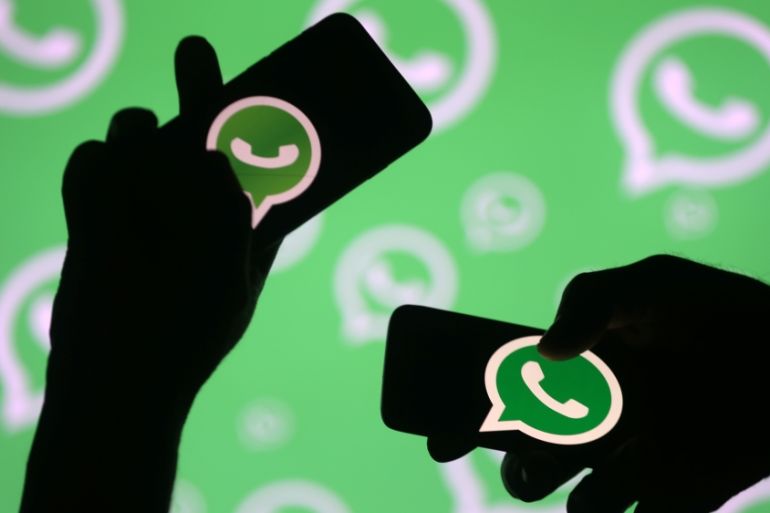Iran to lift ban on WhatsApp, Google Play, state media report
Authorities vote to allow use of Meta’s instant messaging platform and Google Play as a first step to scale back internet restrictions.
WhatsApp is a messaging platform that was bought by Facebook, now Meta, in 2014 [File: Dado Ruvic/Reuters]
Published On 24 Dec 202424 Dec 2024
Iranian authorities have voted to lift a ban on Meta’s instant messaging platform WhatsApp and Google Play as a first step to scale back internet restrictions, according to Iranian state media.
“A positive majority vote has been reached to lift limitations on access to some popular foreign platforms such as WhatsApp and Google Play,” Iran’s official IRNA news agency said on Tuesday, referring to a meeting on the matter headed by President Masoud Pezeshkian.
Keep reading
list of 4 items
list 1 of 4
Iran unveils plan for tighter internet rules to promote local platforms
list 2 of 4
Iran restricts WhatsApp, Instagram as Mahsa Amini protests grow
list 3 of 4
Iran blocks Signal messaging app after WhatsApp exodus
list 4 of 4
Iran key services shut as rial plunges amid energy crisis, regional tension
end of list
Pezeshkian, who took office in July, had promised to ease Iran’s longstanding internet restrictions.
“Today the first step in removing internet limitations … has been taken,” IRNA quoted Minister of Information and Communications Technology Sattar Hashemi as saying.
It was not immediately clear when the decision would take effect.
Social media platforms have been widely used during antigovernment protests in Iran.
Sign up for Al Jazeera
Weekly Newsletter
protected by reCAPTCHA
In September, the United States called on Big Tech to help evade online censorship in countries that heavily censor the internet, including Iran.
The ban had sparked debate in Iran with critics arguing the controls were proving to be costly for the country. “The restrictions have achieved nothing but anger and added costs to people’s lives,” presidential adviser Ali Rabiei said on X.
Others, however, warned against lifting the curbs.
On Tuesday, the reformist Shargh daily reported that 136 members of Iran’s 290-member parliament sent a letter to the top council responsible for safeguarding the internet, saying the move would be a “gift to [Iran’s] enemies”.
The lawmakers called for allowing access to restricted online platforms only “if they are committed to the values of Islamic society and comply with the laws” of Iran.
Iranians have, over the years, grown accustomed to using virtual private networks, or VPNs, to bypass internet restrictions.
Other popular social media platforms, including Facebook, X (formerly Twitter) and YouTube, remain blocked after they were banned in 2009.
Instagram and WhatsApp were added to the list of blocked applications after nationwide protests erupted in September 2022 after the death of Mahsa Amini in custody. Amini, a 22-year-old Iranian Kurd, was arrested for an alleged breach of the Islamic republic’s dress code for women.
Hundreds of people, including dozens of security personnel, were killed in the subsequent months-long nationwide protests. Thousands of demonstrators were arrested.
@Creative
翻譯本文為中文
分析全球互聯網國家級別防火牆的整體情況,列出全球不能訪問google相關服務的全部國家。
伊朗解封後,對中國翻牆有什麼影響,以CF為例加以分析。
Last edited by @suen 2024-12-25T03:58:13Z
